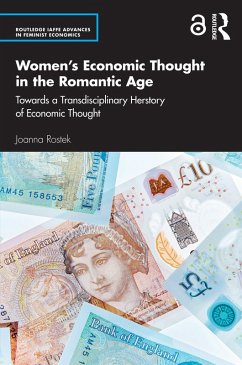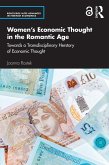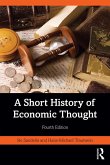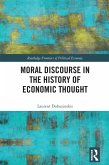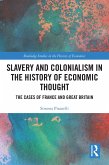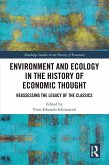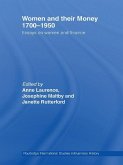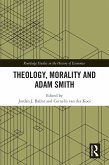Dieser Download kann aus rechtlichen Gründen nur mit Rechnungsadresse in A, B, BG, CY, CZ, D, DK, EW, E, FIN, F, GR, HR, H, IRL, I, LT, L, LR, M, NL, PL, P, R, S, SLO, SK ausgeliefert werden.
"In this brilliant book, Joanna Rostek not only recovers a fascinating history of women writers as economic thinkers, but also challenges our very understanding of what constitutes 'the economy' and its study. A landmark contribution to both literary history and the history of economic thought." - Dr Paul Crosthwaite, Senior Lecturer in English Literature, University of Edinburgh
"The Committee found your book to be highly thought-provoking, beautifully written and well-researched. It demonstrates how several late 18th and early 19th century English women writers analysed topics of central concern to feminist economics, such as the economics of marriage, property rights, employment and wage discrimination, and the undervaluation of care work. You make a convincing case that these writers should be considered economists, and that the insertion of their voices into the history of economic thought makes economic discourses and practices more comprehensive, pluralistic, and therefore, more realistic." - Carmen Diana Deere (Chair), Jane Humphries and Maria Floro, Suraj Mal and Shyama Devi Agarwal Book Prize Committee

